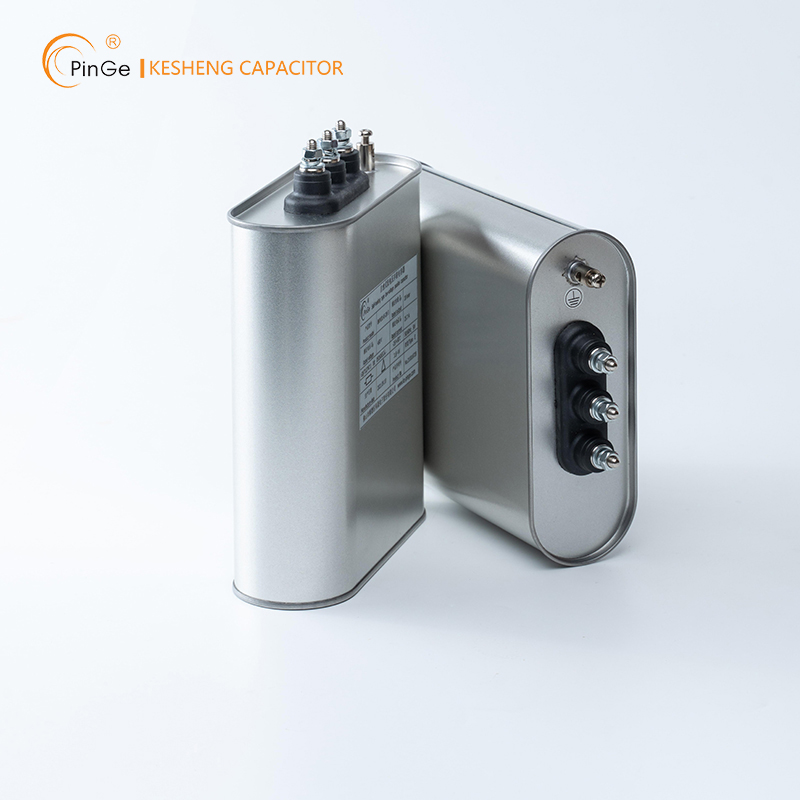Understanding Shunt Capacitors and Their Importance in Power Systems
Introduction
In the realm of power systems, various components play critical roles in ensuring efficient and reliable electricity supply. One such component is the shunt capacitor. In this article, we delve into the world of shunt capacitors, exploring their functionality, applications, and the benefits they bring to power systems.
What is a Shunt Capacitor?
A shunt capacitor is an electronic device designed to store electrical energy in the form of an electric field. It consists of two conductive plates separated by a dielectric material. When a voltage is applied across the plates, the capacitor charges and stores energy. This stored energy can then be released back into the circuit as needed.
Functionality of Shunt Capacitors
Shunt capacitors are primarily used to correct power factor in electrical systems. Power factor is a measure of how effectively electrical power is utilized in a circuit. Ideally, power factor should be unity (1), indicating that all the power supplied by the source is being utilized efficiently.
However, in many industrial and commercial settings, power factor deviates from unity due to the presence of inductive loads. Inductive loads, such as electric motors and transformers, introduce a lagging power factor, leading to reactive power in the system. Reactive power does not contribute to useful work and results in increased losses and decreased system efficiency.

Importance of Shunt Capacitors in Power Systems
Shunt capacitors provide several key benefits to power systems:
1. Power Factor Correction
As mentioned earlier, shunt capacitors correct power factor by introducing reactive power that cancels out the lagging reactive power caused by inductive loads. This correction minimizes power losses, reduces voltage drops, and improves overall system efficiency.
2. Voltage Stability
In addition to power factor correction, shunt capacitors also help in maintaining voltage stability. By injecting reactive power into the system, they compensate for voltage drops that occur due to the reactive current flow. This ensures that voltage levels remain within acceptable limits, preventing equipment malfunction and enhancing the lifespan of electrical devices.
3. Increased Load Capacity
Shunt capacitors effectively increase the load capacity of power systems. By reducing the reactive power component, more active power can be transmitted through the existing infrastructure, allowing for additional loads or expanding the system's capacity without costly upgrades.
4. Reduction in Energy Costs
Improved power factor achieved through the use of shunt capacitors leads to reduced energy costs. By reducing losses and optimizing the utilization of active power, electricity bills are minimized, resulting in substantial cost savings for industrial and commercial consumers.
Applications of Shunt Capacitors
Shunt capacitors find extensive application in various industries and power systems, including:
1. Industrial Plants
Industrial facilities with inductive loads, such as manufacturing plants and mines, benefit significantly from shunt capacitors. Power factor correction ensures efficient utilization of electrical power and helps avoid penalties imposed by utilities for low power factor.
2. Commercial Buildings
Large commercial establishments, such as shopping malls, office complexes, and hospitals, can leverage shunt capacitors to improve power quality and reduce energy consumption. This not only lowers operating costs but also enhances the reliability and performance of electrical equipment.
3. Power Distribution Networks
Shunt capacitors are also deployed in power distribution networks to improve the power factor at substations and along distribution lines. This optimization enables utilities to efficiently transmit electrical energy over long distances while minimizing losses and voltage fluctuations.
Conclusion
Shunt capacitors play a vital role in power systems by correcting power factor, enhancing voltage stability, increasing load capacity, and reducing energy costs. Their widespread applications in industrial, commercial, and distribution settings make them indispensable for achieving efficient and reliable electricity supply. By understanding the importance of shunt capacitors and their functionalities, power system operators can optimize their systems, improve energy efficiency, and ensure uninterrupted power delivery.
Remember, implementing shunt capacitors is just one aspect of optimizing power systems. A comprehensive approach that considers other factors, such as load balancing, transformer sizing, and system design, is crucial for achieving the best results.



